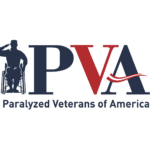How can we make care for persons with spinal cord injuries or diseases (SCI/D) more evidence-based? Since 1995, a group of 23 health professional, payer, and consumer organizations, funded and administered by Paralyzed Veterans of America, has made this question their mission.
It's a mission centered around evidence-based clinical practice guidelines: recommendations to health care providers based on current research findings that expert methodologists have graded for their scientific strength and validity.
Using scientific research and consumer input, the Consortium Steering Committee updates these guidelines and develops new ones, promoting a SCI/D research agenda that encourages scientific rigor and outcome evaluation.
The Consortium's clinical practice guidelines for health care professionals and companion consumer guides help people living with SCI/D put this information to use in their daily lives. These easy-to-understand publications provide guidance and address questions on SCI/D subjects ranging from pressure ulcers to bowel care to expected outcomes one year out from injury. Some consumer guides are available in Spanish. Printed and downloadable versions of the clinical practice guidelines and consumer guides are also available.
CLINICAL PRACTICE GUIDELINES FOR HEALTH CARE PROFESSIONALS
Prevention of Venous Thromboembolism in Individuals with Spinal Cord Injury
Pressure Ulcer Prevention and Treatment Following Spinal Cord Injury, 3rd edition
Sexuality and Reproductive Health in Adults with Spinal Cord Injury
Early Acute Management in Adults with Spinal Cord Injury
Bladder Management For Adults with Spinal Cord Injury
Preservation of Upper Limb Function Following Spinal Cord Injury
Respiratory Management Following Spinal Cord Injury
Acute Management of Autonomic Dysreflexia
Neurogenic Bowel Management in Adults with Spinal Cord Injury
Outcomes Following Traumatic Spinal Cord Injury
Depression Following Spinal Cord Injury
CONSUMER GUIDELINES
Sexuality and Reproductive Health in Adults with Spinal Cord Injury: What You Should Know
Bladder Management Following Spinal Cord Injury: What You Should Know
Respiratory Management Following Spinal Cord Injury: What You Should Know
Preservation of Upper Limb Function Following Spinal Cord Injury: What You Should Know
Autonomic Dysreflexia: What You Should Know
Pressure Ulcers: What You Should Know
Expected Outcomes: What You Should Know
Depression: What You Should Know
Neurogenic Bowel: What You Should Know
SPANISH CONSUMER GUIDES
Ulceras por Decubito: Lo Que Usted Debe Saber (Pressure Ulcers)
Intestino Neurog?nico: Lo Que Usted Debe Saber (Neurogenic Bowel)
Reflejo Disfuncional Autonomo: Lo Qu? Usted Deberia Saber (Autonomic Dysreflexia)
GUIDELINES CURRENTLY BEING DEVELOPED
Nutrition, metabolic disorder and obesity
Psychological adjustment and coping
CONTACT US
For more information:
Shyanne Hardy
Manager, Research Education Coordinator
Paralyzed Veterans of America
1875 Eye Street, Suite 1100
Washington, DC 20006-3517
shyanneh@pva.org
To donate to the Consortium:
Mark Slaughter
Development Officer
marks@pva.org
202-416-7268
800-424-8200, ext. 268
Mail:
Paralyzed Veterans of America
Attn: Mark Slaughter
1875 Eye Street NW, Suite 1100
Washington, DC 20006
The Consortium for Spinal Cord Medicine Steering Committee



